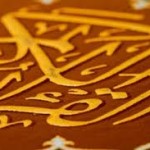Visiting Graves / Using Credit Cards / clothing and timing Salaah / Zakaah in installments
Shortened Question:
Questions related to vising graves, consuming credit cards, payment of Zakat and clothing and Sunnats in Salah
Question:
- Is visiting graves permissible. If yes, what is that we need to be careful while doing so?
- Is using credit cards permissible even if you pay the dues within the stipulated time given by the bank?
- Is it okay adorning half pants below knee and t-shirt up to elbow while performing Salah?
- Can we pay Zakat over a period of 12 months keeping the count, say after Ramadan of this year and up to the beginning of the next Ramadan?
- Is mandatory to perform sunnah salah before (2 rak`at) Fajr, (4 rak`at) Zohar and (4 rak`at) Asr … while Jama`at for the abovementioned salahs, fardh salah has set.
Answer:
In the Name of Allah, the Most Gracious, the Most Merciful.
As-salāmu ‘alaykum wa-rahmatullāhi wa-barakātuh.
- It is advisable to frequently visit the graveyard as this is an effective reminder of death and motivator to prepare for the hereafter. Prophet Muhammad (peace be upon him) said:
فزوروا القبور. فإنها تذكّر الموت
Translation: So visit the graveyard, for indeed it will remind of death[1].
When visiting any grave, it is advisable to supplicate for the deceased. The visitor may also recite the Glorious Qur`an and extend its reward to the deceased.
However, one should neither prostrate or bow down before the grave nor directly ask for the fulfilment of needs from the deceased. This is impermissible and prohibited. In fact, the visitor may supplicate for the fulfilment of needs directly from Allah Taa’la or ask Allah Ta’la through the intermediary of the deceased[2].
- Ideally, a person should avoid using a credit card. However, if a person is required to use a credit card due to contemporary conventional and corporate requirements in order to initiate a deal or payment, he may use a credit card ensuring that he fulfils the timeous payment before its due date and avoids being charged interest which is explicitly Haram in Islam. In principle, it is permissible to use credit cards when required if the dues are paid within the stipulated time given by the bank[3].
- In principle, the Salah will be valid in clothes which ensure that the Satr is covered. However, a person should adorn himself with honourable attire when observing Salah since he is presenting himself before the King of all Kings. It is disliked to perform Salah while wearing a half sleeve or sleeveless shirt or kurta[4].
- It is permissible to pay Zakat whether in one lump sum or in instalments spread over the year as long he fulfils the threshold of Zakat and the Zakat is paid in one calendar year as suggested in the question[5].
- The Sharia has clearly stipulated the time and sequence in prayers. The Sunnah Salah prescribed before the Fardh Salah should be observed prior to performing the Fardh salah. However, the Muslim jurists have explained what a person may do if he has not been able to observe the Sunnah Salah while the Fardh congregation had already began. The answers pertaining to all three Salah are different and are as follows:
- For Fajr, the sunnats should be read even after the congregational Salah has commenced as long as the follower is confident he will be able to gain the congregational prayer before tashahhud[6]. If he doubts in gaining the congregation on offering sunnats, he should leave the sunnats and it is better observe two rak`at salah sometime after the sun has clearly risen till before midday[7].
- If the Zohar and Asr congregational prayer has already commenced, the person should join the congregation and not observe the Sunnats. However, while the person may pray the missed four Sunnat Muakkadah after the Fardh salah in Zohar[8]; there is no compensation for the four Sunnah Ghayr Muakkadah not prayed before Asr congregation[9].
And Allah Ta’āla Knows Best
Hanif Yusuf Patel
Student Darul Iftaa
UK
Checked and Approved by,
Mufti Ebrahim Desai.
References
[1] [Sahih Muslim, 1913; Sunan an-Nasa`I, 2161; Husnad al-Imam Ahmad, 9759]
[2] [Fatawa Mahmudiyyah, 3: 231]
[3] [Contemporary Fataawa Pg.178, Idarah Islamiyyat]
[Buhuth fi Qadhayaa Fiqhiyyah Mu`asarah, 2: 243, Maktabah Dar al-Uloom Karachi]
[4] [Fatawa Mahmudiyyah, 6: 654, Jamiah Faruqiyyah]
[5] وأما حولان الحول فليس من شرائط جواز اداء الزكاة عند عامة العلماء
Bada`I as-Sana`, 2: 484, Dar al-Kutub al-Ilmiyyah]
(وإن قدّم الزكاة علي الحول،وهو مالك للنصاب جاز) و جاز أيضا لأكثر من سنة لوجود السبب، وهو ملك النصاب
[Al-Lubab fi Sharh al-Kitab, 2: 337, Dar al-Basha`ir al-Islamaiyah]
[6] (وإذا خاف فوت) ركعتي (الفجر لاشتغاله بسنتها تركها) لكون الجماعة أكمل (وإلا) بأن رجا إدراك ركعة في ظاهر المذهب. وقيل التشهد واعتمده المصنف والشرنبلالي تبعا للبحر، لكن ضعفه في النهر (لا) يتركها بل يصليها عند باب المسجد إن وجد مكانا وإلا تركها لأن ترك المكروه مقدم على فعل السنة.
[Ad-Durr al-Mukhtar ma`a Radd al-Muhtar, 2: 56, H. M Saeed Company]
[7] تقضي إذا فاتت بلا فرض بعد الطلوع قبل الزوال استحسانا؛ لأن النبي صلى الله عليه وسلم قضاها بعد ارتفاع الشمس
[Majma` al-Anhur Sharh Multaqa al-Abhur, 1: 142, Dar Ihya at-Turath al-Arabi]
قال محمد رحمه الله تعالى: أحب إليّ أن أقضيها إذا فاتت وحدها بعد طلوع الشمس قبل الزوال
[Al-Halabi al-Kabir fi Sharh Munyat al-Musalli, p.397, Maktabah Rashidiyyah]
[Fatawa Mahmudiyyah, 7: 195, Dar al-Ifta Jmaiah Faruqiyyah, Karachi]
تبيين الحقائق شرح كنز الدقائق (قوله أحب إلي أن يقضيها إلى الزوال) قال الحلواني والفضلي ومن تابعهما لا خلاف بينهم فإن محمدا يقول أحب إلي أن يقضي وإن لم يفعل فلا شيء عليه وهما يقولان؛ لأن ليس عليه أن يقضي وإن فعل لا بأس به ومن المشايخ من حقق الخلاف وقال الخلاف في أنه لو قضى يكون نفلا مبتدأ أو سنة كذا في المحيط. اهـ. كاكي. (قوله لما روينا) لا يساعده؛ لأنه - صلى الله عليه وسلم - إنما قضاها مع الصبح ولا خلاف فيه بل يستدل له لما روى الترمذي عن أبي هريرة - رضي الله عنه - قال: قال رسول الله - صلى الله عليه وسلم - «من لم يصل ركعتي الفجر فليصلهما بعدما تطلع الشمس» وفي الموطإ عن مالك بلغه أن عمر - رضي الله عنه - فاتته ركعتا الفجر فقضاهما بعد أن طلعت الشمس. اهـ. كاكي
[Tabyin al-Haqa`iq Sharh Kanz ad-Daqa`iq wa Hashiyat as-Shalbi, 1: 183]
[8] (وقضى التي قبل الظهر في وقته) أي في وقت الظهر (قبل شفعه) أي قبل الركعتين اللتين بعد الفرض وهذا عند محمد وعندهما يبدأ بالركعتين، ثم يقضي الأربع؛ لأنها لما فات محلها صارت نفلا مبتدأ فيبدأ بالركعتين كي لا يفوت محلها وعند محمد هي سنة على حالها فيبدأ بها، ألا ترى إلى ما يروى عن عائشة - رضي الله عنها - أنه - عليه الصلاة والسلام - «كان إذا فاتته الأربع قبل الظهر قضاها بعده» أطلقت عليه اسم القضاء وهو اسم لما يقام مقام الفائت
[Tabyin al-Haqa`iq Sharh Kanz ad-Daqa`iq wa Hashiyat as-Shalbi, 1: 183]
[9] [Kifayat al-Mufti, 3: 321-331, Dar al-Isha`at; Fatawa Mahmudiyyah 7: 200, Dar al-IftaJamiah Faruqiyyah, Ka
DISCLAIMER:
The Ask Our Imam site hopes to respond to queries relating to Islamic law. It is not an Islamic Law Shari`ah Court. The questions and answers found on this website are for educational purposes. However, many of the rulings rendered here are distinct to the specific scenario and thus should be read in conjunction with the question and not taken as a basis to establish a verdict in another situation or environment. This site bears no responsibility in these responses being used out of their intended context, nor to any party who may or may not follow the responses given and is being hereby exempted from loss or damage howsoever caused. None of the responses rendered may be used as evidence in any Court of Law without prior written consent of Our Imam. Any reference to another website or link provided in our responses or article should not be taken as an endorsement of all the content on that website; in fact, it is restricted to the particular material being cited.
Posted in Buyoo' (Money-related issues)MiscelleaneousCustomsDeath (Funeral)Salaah (Prayer)Zakaah (Alms) on 19th Jan 2016 by Our Imam | 2985 Views











